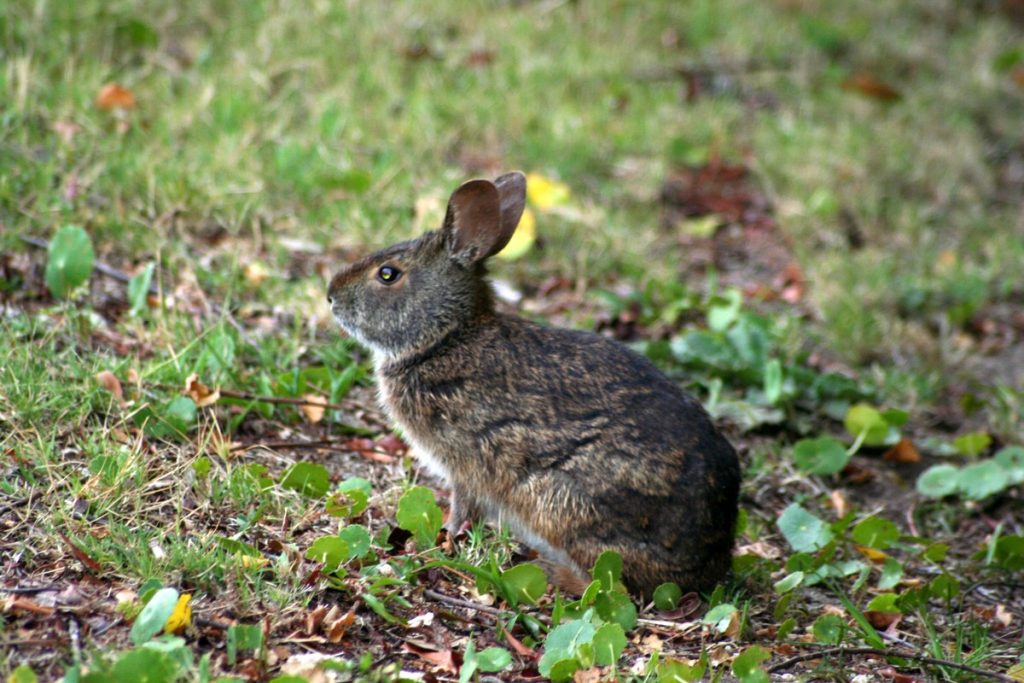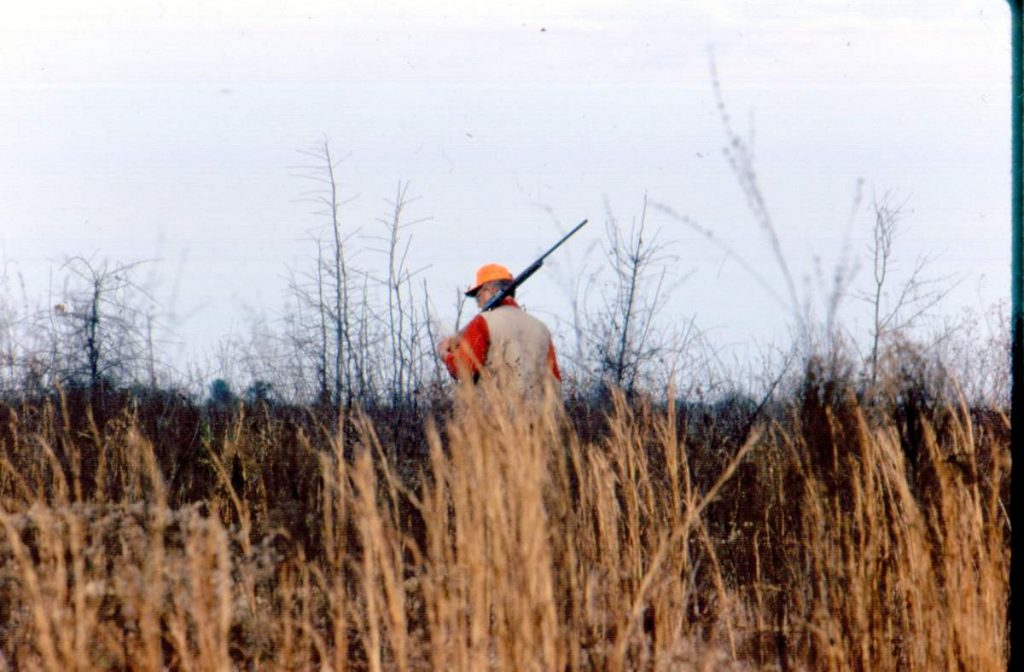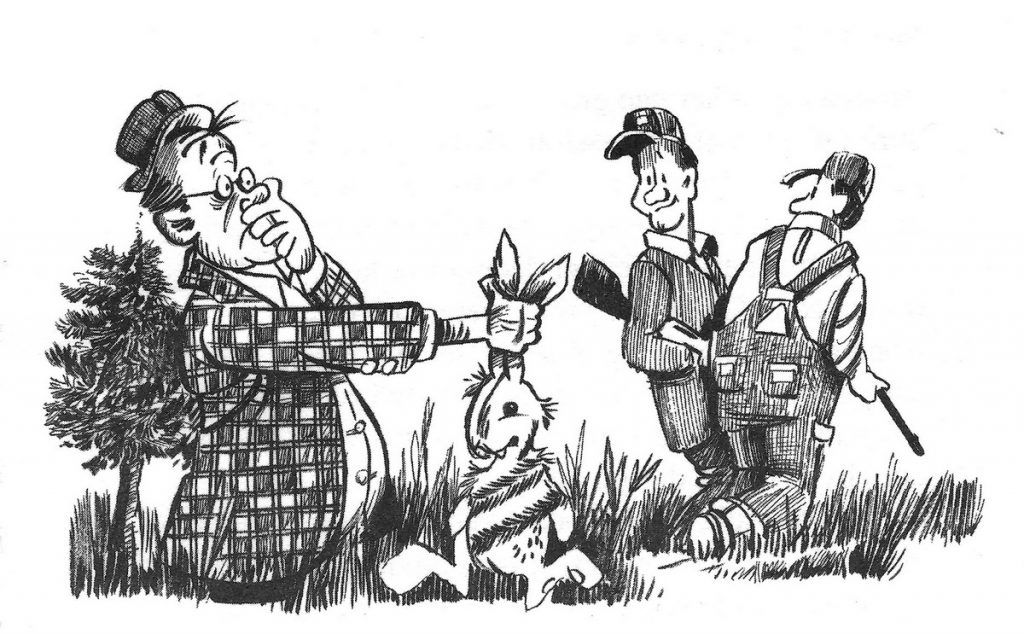Winter 2024
By Jimmy Jacobs
(This tale is an excerpt from Moonlight Through The Pines, Tales from Georgia Evenings. The book is available in the Georgia Outdoor Writers Association Bookstore.)
Growing up in suburban Atlanta in the 1950s created a bit of a culture clash. Though living in an intown household, our family was still but one generation away from the farm and rural life. In fact, such situadons were not at all uncommon in that day. The unpleasantness of the 19408 known as World War II had been the catalyst for sending thousands of Southerners scum)’ing from the farm into towns and cities to work in armament plants and, after the war, industrial jobs.
These folks, of course, did not leave behind all of their cultural attachments. One that was commonly brought along was the love of the outdoors in general and of hunting in particular. Such was the case in our family during my formative years. Prior to moving to Atlanta my father had grown up on a west Georgia farm during the Great Depression. He had learned to hunt to help feed the family, as well as for recreation. His love of the outdoors naturally passed along to his offspring.
In that period, neither deer nor turkeys had been restocked in Georgia, so they were not even considered when a hunt was being planned. In an urban or suburban setting it was pretty impractical to keep a bird dog, so quail were game birds of chance that were stumbled onto by accident during hunts.

Rabbits were once Georgia ooutdoorsmens’ best bet for a hunt. Photo by Jimmy Jacobs.
As a result, this was the heyday of rabbit hunting. Naturally, the most effective method of hunting was using a pack of beagles to find and run the critters. Again, however, these diminutive, yelping hounds were not ideal neighbors, so, in the interest of peace in the neighborhood, hunting dogs were rarely available to us.
Fortunately, most rural areas where row cropping was common in that decade were overrun with cottontails. It was relatively easy to put on a “rabbit drive” and be quite successful. And, back then, farmers were more than happy to allow hunters to thin out the bunnies on their land. One only needed to politely ask permission and remernber to close the gates to stay on good terms with most landowners.
Our family rabbit hunts usually were composed of my father, brother, myself and an assorted gaggle of uncles and cousins. We would spread out to walk in line, stretched over a swath of 75 or 100 feet along the edges of fields and pastures. Undoubtedly, many cottontails simply stayed hidden and let us walk past them, but back then the rabbits were so thick that enough were jumped to keep the action at an adequate, if not constant level.

When cottontails were plentiful, a rabbit drive without dogs was a simple, yet practical tactic. Photo by Jimmy Jacobs.
My first rabbit was taken on such a hunt when I was about 12 years old. He was one of those cottontails that preferred stealth, but I caught sight of him slipping into a ditch full of blackberry canes. The single-shot .410 shotgun I carried changed the critter’s plans and the rabbit went home to dinner with a proud and excited young hunter.
Another bonus of springing from a rabbit hunting family was the wealth of tales that were bandied about the fireplace on winter evenings. Listening to the stories of hunts from bygone days was about as much fun for preteen boys as were the actual days in the field.
One that was retold more than once around the hearth dealt with a hunt my father, Rufus Jacobs, was on that demonstrated just how plentiful cottontails once were in the Peach State. He and a group of his cronies were putting on a drive up a west Georgia hollow that bordered some farmland. Suddenly, from the bottom of the mini ravine, a cottontail bolted in front of my dad. Throwing his 12-gauge to his shoulder, he sang out “there he goes!” He also let loose a load of No. 6 shot at the fleeing rabbit.
“You got him!” shouted one of his hunting buddies.
Needless to say that proved rather confusing to my father, since he was watching the rabbit disappear farther down the hollow on the run.
“Nope, I missed him,” Dad corrected.
“I see him and he’s dead as a door nail,” the crony argued.
Sure enough, there was a dead rabbit on the side of the hollow, but it was one that had been sitting in its bed. My dad’s shot at the running rabbit had sailed high to strike the cottontail trying to hide in the cover!
Back in those days, my father was a rather large man (affectionately referred to as “Lard” by his brothers and friends), and not above adding a bit of humor to a day in the woods. On one occasion a local Baptist preacher, who was new to the area, mentioned that, although he did not hunt, he enjoyed tagging along on rabbit hunts for the camaraderie and because he did love fried rabbit. He even volunteered to carry all the game in return for an invitation to join a hunt. Obligingly, my dad arranged for the parson to take part in the next outing.
When the appointed day arrived, the weather turned off unseasonably warm for a Piedmont day in the fall. Soon after the hunt began the participants trudged across a dirt road. As my father crossed he spotted a none-to-fresh rabbit laying in the road where it had been run over by a car. Realizing the preacher was not in sight, Dad sang out that he saw a rabbit, discharged a load of shot into the ground and picked up the road kill. The cottontail, complete with tread marks, was handed over to the minister, who dutifully carried it around the rest of the day – until the growing rancid odor of the animal gave the joke away.

Illustration by Cal Warlick.
Not all of the stories generated in the family by rabbit hunting originate with my father. Probably the most renowned one involved him only in a peripheral way. The hero of this tale was my maternal grandfather, Jim Hannah.
Granddad was a throw back to another age. He was strict, solemn, straight-laced and serious, especially when hunting or fishing. Often I accompanied him to some angling destination and less than half a dozen words were exchanged once the water was reached. He thought noise in general and talking in particular scared the fish away. He sat perfectly still and silent for hours waiting for a fish to happen by and bite his hook.
On the memorable hunt, Mr. Hannah (as he was referred to by all of his sons-in-law) was in the woods with my dad and a couple of my uncles. They were driving a creek bottom that lies in the shadow of Buzzard Mountain, just outside the town of Rockmart in eastern Polk County. The shooting had been good, with several cottontails already in the game bag.
Suddenly, Granddad let out the familiar call of “There he goes !” Inexplicably, however, there was no report of a shotgun following the yell, which left the other hunters scratching their collective heads. They could see Mr. Hannah locked in a shooting position and looking rather puzzled.
Where’d he go?” my father finally shouted over to the older man.
“Up that tree !” was the perplexed answer that floated back.
When the hunters gathered under the tree in question, they quickly located a fairly in-tempered old tabby cat looking down at them.
After an appropriate amount of snickering, the hunt was resumed, leaving Granddad muttering the rest of the day about how close he came to taking a stray cat home in his game bag!
Now days it is much less common to create a rabbit hunting tradition or to keep it alive in a suburban family. I have tried it with my two sons, but the result has not been very encouraging. We are at the mercy of finding someone who has some beagles for such a hunt. On the occasions when we have tried a rabbit drive the shooting has been intolerable slow and sporadic. There are just too few cottontails in most areas for such tactics to bare fruit.
Of course, when sitting around a campfire, little has changed. I simply dip into the deep well of traditional family rabbit hunting adventures. The next generation of Jacobs boys seem to find them just as entertaining as I did at their age.
Jimmy Jacobs is the editor of Georgia Outdoor Adventures, as well as being editor/publisher of On The Fly South. He also is a member of the Georgia Outdoor Writers Association. He makes his home in Marietta with his English setters, Luke and Lulu. He can be contacted at jimmyjacobs@mindspring.com.